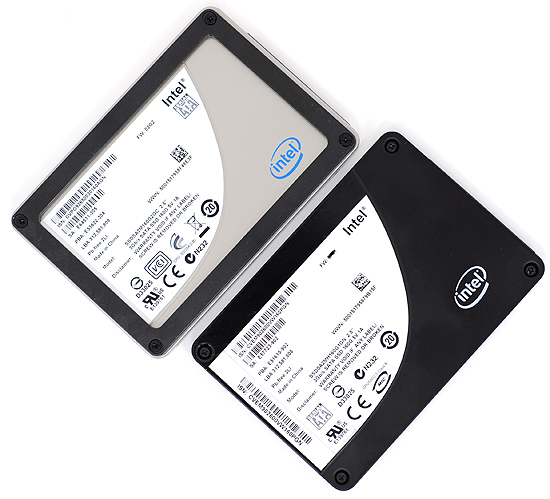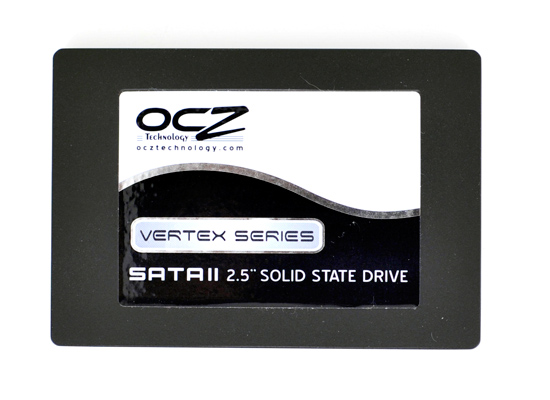The SSD Relapse: Understanding and Choosing the Best SSD
by Anand Lal Shimpi on August 30, 2009 12:00 AM EST- Posted in
- Storage
One Tough Act to Follow
What have I gotten myself into? The SSD Anthology I wrote back in March was read over 2 million times. Microsoft linked it, Wikipedia linked it, my esteemed colleagues in the press linked it, Linus freakin Torvalds linked it.
The Anthology took me six months to piece together; I wrote and re-wrote parts of that article more times than I'd care to admit. And today I'm charged with the task of producing its successor. I can't do it.
The article that started all of this was the Intel X25-M review. Intel gave me gold with that drive; the article wrote itself, the X25-M was awesome, everything else in the market was crap.

Intel's X25-M SSDs: The drives that started a revolution
The Anthology all began with a spark: the SSD performance degradation issue. It took a while to put together, but the concept and the article were handed to me on a silver platter: just use an SSD for a while and you’ll spot the issue. I just had to do the testing and writing.

OCZ's Vertex: The first Indilinx drive I reviewed, the drive that gave us hope there might be another.
But today, as I write this, the words just aren't coming to me. The material is all there, but it just seems so mature and at the same time, so clouded and so done. We've found the undiscovered country, we've left no stone unturned, everyone knows how these things work - now SSD reviews join the rest as a bunch of graphs and analysis, hopefully with witty commentary in between.
It's a daunting, no, deflating task to write what I view as the third part in this trilogy of articles. JMicron is all but gone from the market for now, Indilinx came and improved (a lot) and TRIM is nearly upon us. Plus, we all know how trilogies turn out. Here's hoping that this one doesn't have Ewoks in it.
What Goes Around, Comes Around
No we're not going back to the stuttering crap that shipped for months before Intel released their X25-M last year, but we are going back in the way we have to look at SSD performance.
In my X25-M review the focus was on why the mainstream drives at the time stuttered and why the X25-M didn't. Performance degradation over time didn't matter because all of the SSDs on the market were slow out of the box; and as I later showed, the pre-Intel MLC SSDs didn’t perform worse over time, they sucked all of the time.
Samsung and Indilinx emerged with high performance, non-stuttering alternatives, and then we once again had to thin the herd. Simply not stuttering wasn't enough, a good SSD had to maintain a reasonable amount of performance over the life of the drive.
The falling performance was actually a side effect of the way NAND flash works. You write in pages (4KB) but you can only erase in blocks (128 pages or 512KB); thus SSDs don't erase data when you delete it, only when they run out of space to write internally. When that time comes, you run into a nasty situation called the read-modify-write. Here, even to just write 4KB, the controller must read an entire block (512KB), update the single page, and write the entire block back out. Instead of writing 4KB, the controller has to actually write 512KB - a much slower operation.
I simulated this worst case scenario performance by writing to every single page on the SSDs I tested before running any tests. The performance degradation ranged from negligible to significant:
| PCMark Vantage HDD Score | New | "Used" |
| Corsair P256 (Samsung MLC) | 26607 | 18786 |
| OCZ Vertex Turbo (Indilinx MLC) | 26157 | 25035 |
So that's how I approached today's article. Filling the latest generations of Indilinx, Intel and Samsung drives before testing them. But, my friends, things have changed.
The table below shows the performance of the same drives showcased above, but after running the TRIM instruction (or a close equivalent) against their contents:
| PCMark Vantage HDD Score | New | "Used" | After TRIM/Idle GC | % of New Perf |
| Corsair P256 (Samsung MLC) | 26607 | 18786 | 24317 | 91% |
| OCZ Vertex Turbo (Indilinx MLC) | 26157 | 25035 | 26038 | 99.5% |
Oh boy. I need a new way to test.










295 Comments
View All Comments
Anand Lal Shimpi - Monday, August 31, 2009 - link
Intel insists it's not an artificial cap and I tend to believe the source that fed me that information.That being said, if it's not an artificial cap it's either:
1) Designed that way and can't be changed without a new controller
2) A bug and can be fixed with firmware
3) A bug and can't be fixed without a new controller
Or some combination of those items. We'll see :)
Take care,
Anand
Adul - Monday, August 31, 2009 - link
Another fine article anand :). Keep up the good work.CurseTheSky - Monday, August 31, 2009 - link
This is absolutely the best article I've read in a very long time - not just from Anandtech - from anywhere.I've been collecting information and comparing benchmarks / testimonials for over a month, trying to help myself decide between Intel, Indilinx, and Samsung-based drives. While it was easy to see that one of the three trails the pack, it was difficult to decide if the Intel G2 or Indilinx drives were the best bang for the buck.
This article made it all apparent: The Intel G2 drives have better random read / write performance, but worse sequential write performance. Regardless, both drives are perfectly acceptable for every day use, and the real world difference would be hardly noticeable. Now if only the Intel drives would come back in stock, close to MSRP.
Thank you for taking the time to write the article.
deputc26 - Monday, August 31, 2009 - link
been waiting months for this one.therealnickdanger - Monday, August 31, 2009 - link
Ditto! Thanks Anand! Now the big question... Intel G2 or Vertex Turbo? :) It's nice to have options!Hank Scorpion - Monday, August 31, 2009 - link
Anand,YOU ARE A LEGEND!!! go and get some good sleep, thanks for answering and allaying my fears... i appreciate all your hard work!!!!
256GB OCZ Vertex is on the top of my list as soon as a validated Windows 7 TRIM firmware that doesnt need any work by me is organized....
once a firmware is organised then my new machine is born.... MUHAHAHAHAHAHA
AbRASiON - Monday, August 31, 2009 - link
Vertex Turbo is a complete rip off, Anand clearly held back saying it from offending the guy at OCZ.Now the other OCZ models however, could be a different story.
MikeZZZZ - Monday, August 31, 2009 - link
I too love my Vertex. Running these things in RAID0 will blow your mind. I'm just waiting for some affordable enterprise-class drives for our servers.Mike
http://solidstatedrivehome.com">http://solidstatedrivehome.com
JPS - Monday, August 31, 2009 - link
I loved the first draft of the Anthology and this is a great follow-up. I have been running a Vertex in workstation and laptop for months know and continue to be amazed at the difference when I boot up a comparable system still running standard HDDs.gigahertz20 - Monday, August 31, 2009 - link
Another great article from Anand, now where can I get my Intel X-25M G2 :)